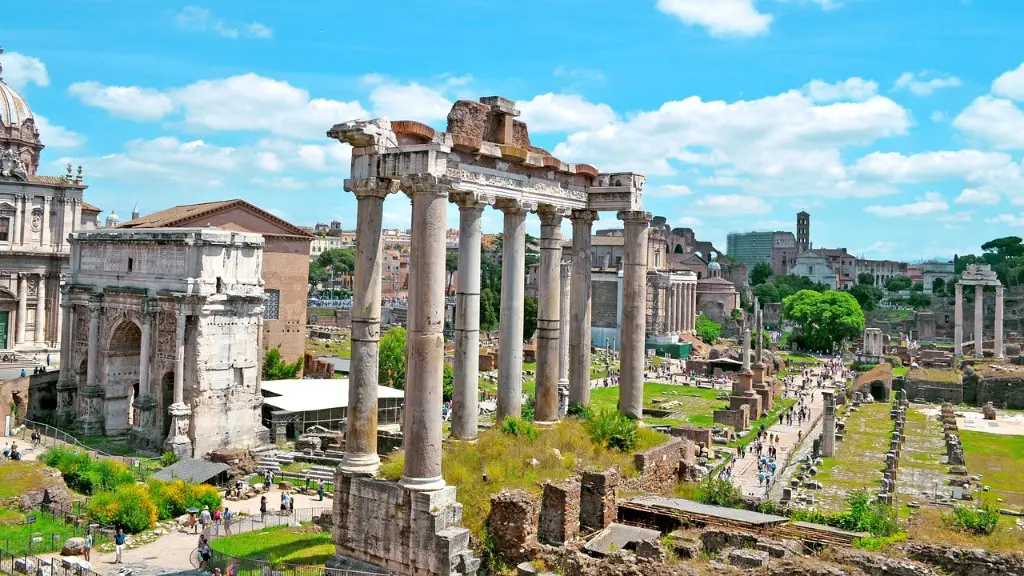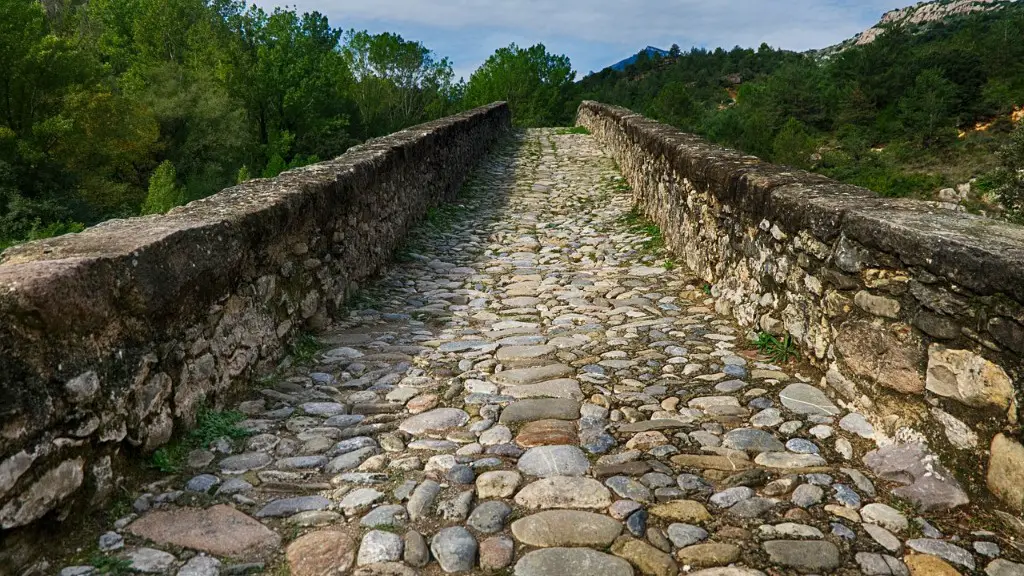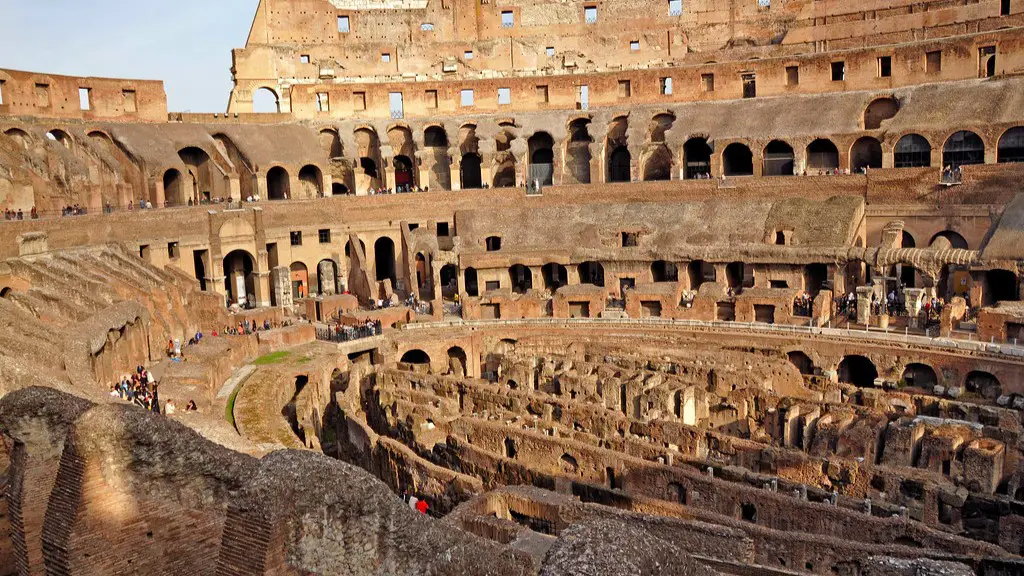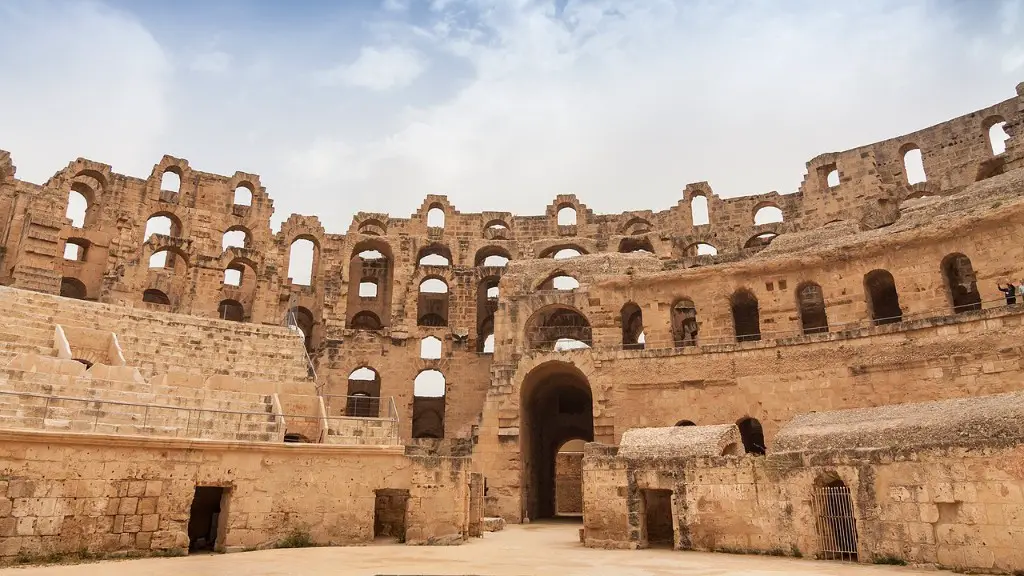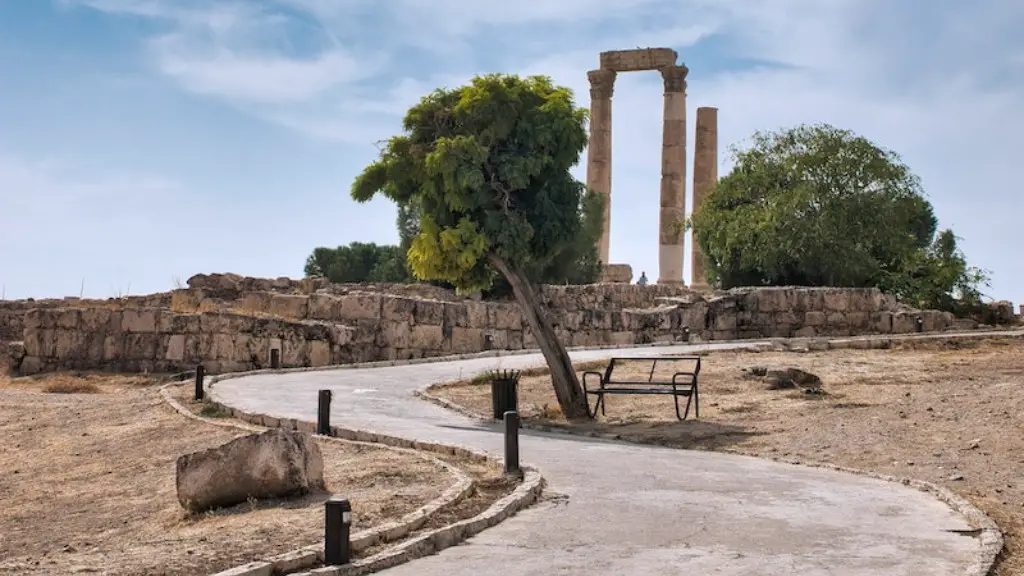Who was the first Christian Emperor of ancient Rome? It was an important question throughout history, as the Roman Empire was one of the greatest empires in world history and was responsible for the spread of Christianity across much of the ancient world. There have been various theories about who the first Christian Emperor of Rome was, but the debate has largely centered around two main figures: Constantine I and Theodosius I.
Constantine I is one of the most well-known figures of the Roman Empire and has sometimes been referred to as the first Christian Emperor of Rome. Constantine is known for his Edict of Milan, which ended the persecution of Christians, and for his conversion to Christianity. He also helped to spread the faith and is famous for ordering the construction of the Hagia Sophia in Constantinople, one of the largest churches of the time. Although Constantine was deeply sympathetic to Christianity, it is not clear that he was actually baptized himself.
Theodosius I is another potential candidate for the title of first Christian Emperor of Rome. He is known for making Christianity the official religion of the Roman Empire and for issuing a series of edicts which promoted and defended Christianity. Theodosius was baptized in 386 CE and is known to have authorized the destruction of pagan temples. He is also remembered for his energetic efforts to defend the faith against heretics and non-Christians.
Both Constantine I and Theodosius I have been seen as contenders for the title of first Christian Emperor of Rome. Some historians argue that Constantine was the first, as he enacted laws that protected the faith and encouraged the spread of Christianity. Others believe that Theodosius was the first, as he went further in promoting the faith and making it the official religion of the empire. Both figures had a major impact on the spread of Christianity and there is no doubt that they had a crucial role in the history of the Roman Empire.
It is difficult to definitively answer the question of who was the first Christian Emperor of Rome. Both Constantine I and Theodosius I had an enormous impact on the spread of Christianity and their contributions to the empire are remembered even today. Ultimately, the debate comes down to individual perspectives and interpretations of history and it is likely that the answer will never be fully resolved.
The Impact of Christianity in the Roman Empire
The introduction of Christianity as the official religion of the Roman Empire was a defining moment in its history. It had a big impact on the culture and society, as the faith emphasized charity and compassion and was more tolerant of diversity than earlier Roman religions. The adoption of Christianity further increased the power of the emperor, as it provided him with a new source of political legitimacy and a moral code to which he could appeal.
The spread of Christianity also helped to strengthen the unity of the Roman Empire and had an impact on the structure of its government and society. Many of the laws of the Imperial government were inspired by Christian teachings, and it was through Christianity that the concepts of human rights and justice became established.
The Christian faith also gave the Roman people a common language and set of beliefs, which further unified them and allowed for greater social cohesion. Christianity also helped to inspire the creation of art, literature and other forms of culture. It is clear that the adoption of Christianity had a major impact on the history of the Roman Empire and its legacy can still be felt today.
The Spread of Christianity to Other Parts of The Roman Empire
Constantine I and Theodosius I had a major impact on the spread of Christianity in the Roman Empire, but this spread was already beginning before their reigns. Christianity had already spread to Gaul and the British Isles by the time Constantine became emperor and continued to spread to other parts of the Empire during the fourth century CE. By the mid-fifth century, it had spread to North Africa, Armenia and other parts of the Eastern Mediterranean, becoming the dominant faith throughout much of the Empire.
The conversion of the Romans to the new faith was aided by a number of factors, such as Constantine’s Edict of Milan which ended the persecution of Christians, the decrees of Theodosius I and the rising popularity of monasticism. Christianity also found favor among many of the common people of the time, as its emphasis on charity appealed to their sense of justice and compassion.
Christianity continued to spread and by the end of the sixth century, it had become firmly established throughout most of the former Roman Empire. This spread of the faith had a major impact on the history of Europe, as it fostered greater unity between different peoples and helped to create the foundation of medieval culture.
Modern Impact of Christianity in the Roman Empire
Although most of the former Roman Empire is no longer Christian, the legacy of the faith still lives on in various forms. The Roman Catholic Church, for example, traces its origins to the establishment of Christianity in the Empire, and many of its major doctrines and beliefs were formed during this period.
Christianity also had a major impact on the development of Western law and art, as many of the laws and social customs which are still followed today were first established during the Roman period. Christianity was also instrumental in the development of modern educational systems, with the creation of the first universities taking place during the Middle Ages.
The Christian faith also helped to shape the modern political landscape. Many of the democratic principles which are followed today, such as human rights, individual liberty and the rule of law, can be traced back to ideas which were first formulated during the Roman period. It is clear that the legacy of Christianity in the Roman Empire can still be seen in the world today.
Political and Social Consequences of Christianity in the Roman Empire
Although Christianity had a positive impact on the Roman Empire, it also had its share of negative consequences. The adoption of the faith encouraged the growth of spirituality, but it also had an impact on politics, as the growing power of the Church made it a powerful force within the Empire. The Church was also known to use its influence to oppose gender equality, slavery and other social systems which it viewed as immoral.
Christianity also had an impact on the structure of the Imperial government, as it bolstered the authority of the emperor over other officials. This shift in power led to the further concentration of power in the hands of the emperor, leading to increased corruption and the weakening of the legislative branch.
In addition, Christianity had an impact on the economic system, as the Church came to own an increasing amount of land and wealth. This led to increased inequalities, as it created a great disparity between the rich and the poor. It also reduced the amount of land available for agriculture, leading to a decline in productivity.
Conclusion
Who was the first Christian Emperor of Rome? This is an important question, as it highlights the impact that Christianity had on the history of the Roman Empire. Although both Constantine I and Theodosius I have been seen as contenders for the title, it is difficult to definitively answer this question and it ultimately comes down to individual perspectives. What is clear, however, is that the introduction of Christianity had a big impact on the culture and society of the Roman Empire, as it helped to encourage charity and unity, as well as providing the empire with a source of political legitimacy.
